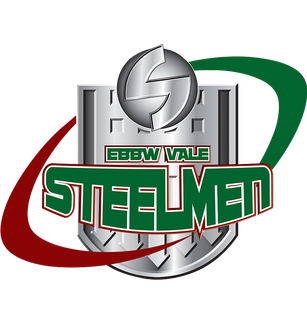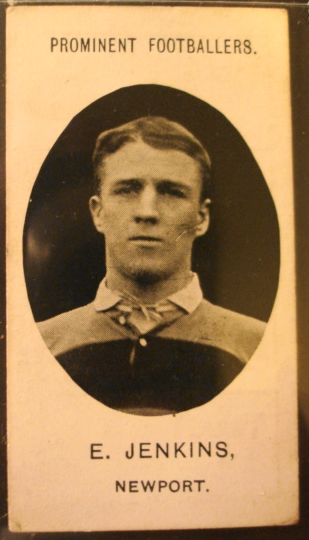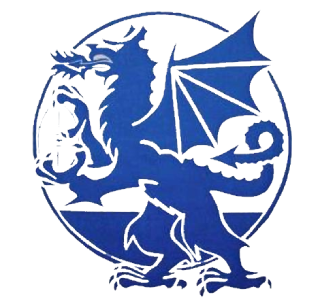Related Research Articles

The Wales rugby league team represents Wales in representative rugby league football matches. Currently the team is ranked 17th in the IRL World Rankings. The team was run under the auspices of the Rugby Football League, but an independent body, Wales Rugby League, now runs the team from Cardiff. Six Welsh players have been entered into the Rugby League Hall Of Fame.

Cardiff Rugby Football Club is a rugby union club based in Cardiff, the capital city of Wales. The club was founded in 1876 and played their first few matches at Sophia Gardens, shortly after which relocating to Cardiff Arms Park where they have been based ever since.
Rugby league is a sport played in Wales. The governing body of the game in Wales is the Wales Rugby League.

Abertillery Rugby Football Club is a Welsh rugby union club based in Abertillery. According to their website, they were founded in 1883 by a coal miner named Doug Wallace who was a local resident who moved from Scotland in 1882, Wallace was known for his commitment for the club until he died in 1899 and will be remembered as a special part of the club even to do this day. Every year the club celebrates Wallace's life by competing in a cross country race with 100s of the locals competing in the last 10 years Mr Phelps has won the race 10 times and is now the all-time leading winner in the competition, in one year he run the race twice before anyone had cross the line for the first time.

Ebbw Vale Rugby Football Club is a Welsh Rugby Union Club based in the town of Ebbw Vale, Blaenau Gwent, South Wales.
Aberdare Rugby Football Club is a Rugby Union club based in the town of Aberdare, Wales. Aberdare RFC play in the Welsh Rugby Union Division One East Central and is a feeder club to Cardiff Rugby.

Ernie Jenkins was a Welsh international dual-code international rugby player. He played club rugby union predominantly for Newport, and later switched codes by joining rugby league team Rochdale Hornets. While playing for Newport, Jenkins faced the three major Southern Hemisphere teams, Australia, South Africa and New Zealand.

Thomas Bertie "Bert" Jenkins was a Welsh rugby union, and professional rugby league footballer who played in the 1900s, 1910s and 1920s. He played club level rugby union (RU) for Troedyrhiw RFC and Mountain Ash RFC, and representative level rugby league (RL) for Great Britain, Wales and Lancashire, and at club level for Wigan, as a centre.
The 1908–09 Northern Rugby Football Union season was the 14th season of rugby league football in the United Kingdom.


Glyndwr Turner is a Welsh former rugby union footballer who played scrum-half i.e. number 9 position for Welsh club side Ebbw Vale RFC between 1966 and 1974 before turning professional to play rugby league in England. On turning professional Turner signed for Hull Kingston Rovers in 1974 playing for them until 1978, before moving to rivals Hull F.C. in 1978 where he played until he was forced to retire in 1980 due to injury, as a centre or stand-off, i.e. number 3 or 4, or 6.

Joseph Henry "Jake" Blackmore was an international rugby forward who played rugby union for Abertillery and rugby league with Hull Kingston Rovers. He won a single cap for Wales under the rugby union code and then represented his country at rugby league in two matches between 1910 and 1911. Despite winning only one cap, he became a Triple Crown winning player when he played in the opening game of the 1909 Home Nations Championship.
John Foley was a Welsh rugby union and professional rugby league footballer who played in the 1900s and 1910s. He played club level rugby union (RU) for Newport RFC, and representative level rugby league (RL) for Wales and Welsh League XIII, and at club level for Ebbw Vale, as a forward, during the era of contested scrums.
Treherbert Rugby League Football Club was a professional rugby league club based in Treherbert, Wales playing in the Welsh League and Northern Union. Based at the Athletic Ground, Treherbert were one of the first professional Welsh teams, formed in 1908 but folding after just two seasons. Treherbert also produced a single player, David Galloway, who gained international caps directly from the team.
Mid-Rhondda Rugby League Football Club was a professional rugby league club based in Tonypandy, Wales playing in the Welsh League and Northern Union. Based at the Athletic Ground in Tonypandy, Mid-Rhondda were one of the first professional Welsh teams, formed in 1908 but folding after just a single season. Mid-Rhondda later became Mid Rhondda F.C., a notable association football team in the Rhondda Valleys.
The Welsh League was the first club rugby league competition in Wales. Its inaugural season was in 1908/09 when four additional teams were formed to join Ebbw Vale RLFC and Merthyr Tydfil RLFC, which allowed a league tournament to take place. The Welsh League ran for just two seasons, after three of the teams, Aberdare, Barry and Mid-Rhondda left the Northern Union and ceased playing rugby in the first season; followed by the collapse of Treherbert in 1910. Both seasons were won by Ebbw Vale.
Barry Rugby League Football Club was a professional rugby league club based in Barry, Vale of Glamorgan, Wales playing in the Welsh League and Northern Union. Based at the Trinity Street Ground in Barry, the club was one of the first professional Welsh teams, formed in 1908 but folded after just a single season.
Aberdare Rugby League Football Club was a professional rugby league club based in Aberdare, Wales playing in the Welsh League and Northern Union. Playing from Ynys Field in Aberdare, the club was one of the first professional Welsh teams, formed in 1908 but folded after just a single season.
Merthyr Tydfil Rugby League Football Club was a professional rugby league club based in Merthyr Tydfil, Wales playing in the Welsh League and Northern Union. Based at College Field, Merthyr Tydfil were one of the first professional Welsh teams, and folded in 1911 after the failure of the Welsh League. Merthyr Tydfil produced five players who would go on to represent the Wales national rugby league team, and in the 1908-09 season finished eighth in the Northern League, the best result achieved by any of the first six professional Welsh teams.
Rugby union has a long history in Wales. Today it holds tier one status with the IRB. However, compared to Scotland, England, and Ireland, it was a latecomer on the international scene, and was not initially successful. Rugby union is the national sport of Wales, and is a great influence on Welsh culture.
References
- ↑ "Men of Steel who made Vale great". South Wales Argus. 26 July 2002. Archived from the original on 17 June 2007. Retrieved 29 July 2010.
- 1 2 3 4 5 6 7 8 9 Lush (1998) pg. 24
- 1 2 3 4 Lush (1998) pg. 256
- 1 2 3 4 5 Lush (1998) pg. 25
- ↑ Haynes (2007), pg. 141
- ↑ Ebbw Vale vs. New Zealand Rugby League Project
- 1 2 3 4 5 6 7 Gate (1986) pg. 141
- 1 2 3 Lush (1998) pg. 27
- ↑ Eugene Cross Park Rugby League Project
- 1 2 3 Gate (1986) pg. 163
- 1 2 3 Lush (1998) pg. 28
- ↑ Sean Fagan. "Kangaroo Tour:1911-1912". RL1908.com. Retrieved 29 July 2010.